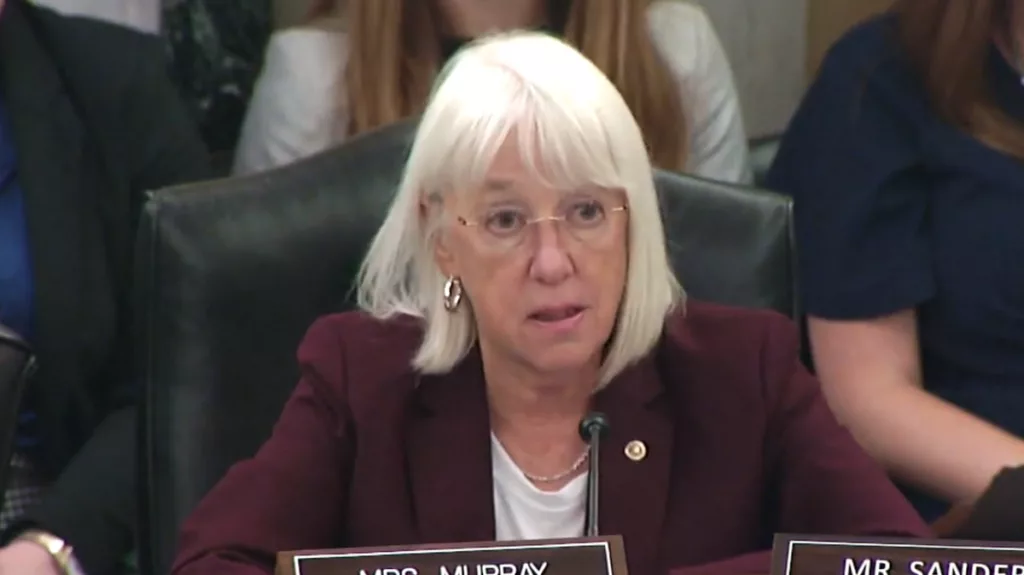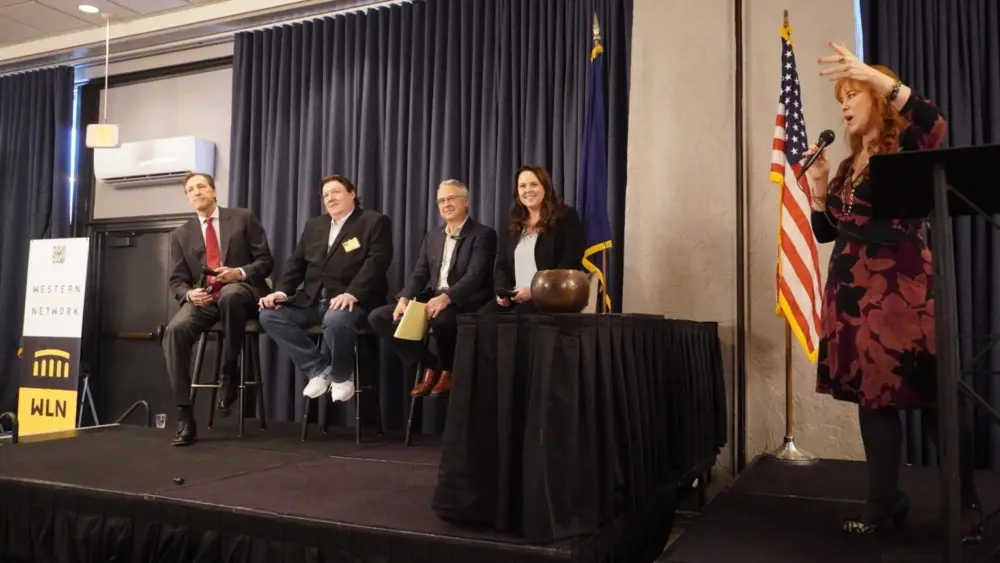OLYMPIA, WA – U.S. Sen. Patty Murray warned Friday that 14 hospitals in her home state of Washington may close due to Medicaid cuts in the Trump administration’s One Big Beautiful Bill Act.
President Donald Trump signed the roughly 900-page bill, which fulfills much of his agenda, into law on July 4. The budget reconciliation package is expected to increase the national deficit by around $4 trillion over the next decade, while reducing federal Medicaid spending by $1 trillion.
Medicaid is a state and federal program that covers medical costs for those with limited incomes.
Democrats across the nation have warned that new Medicaid eligibility requirements could push millions of Americans out of the program. Murray cited a figure on Friday, which came from Gov. Bob Ferguson, according to her staff, that at least 250,000 people will lose healthcare coverage.
“Yes, it does, the estimates that have been analyzed so far show that 250,000 people, who rely on Medicaid today, will lose that coverage,” Murray told The Center Square on Friday after being asked whether that number also considers the exemptions for the new eligibility requirements.
Ferguson says another 150,000 residents could be priced out of the state health care exchange.
Nearly 2 million people rely on the state’s Medicaid program, Apple Health, which it expanded in 2022. The Legislature put another $150 million behind it earlier this year “for adults with certain immigration statuses, including those without one,” according to the Washington State Health Care Authority.
Enrollment for the expanded program opened about a year ago. According to reporting by The Center Square, around 13,000 people enrolled within 48 hours, reaching the maximum, with about 17,000 still on a waiting list. While not all are undocumented or illegal immigrants, many will lose coverage.
Hospitals often incur the costs of Medicaid-funded healthcare, with the government reimbursing them later; however, the amount refunded is usually underpaid. Many hospitals will shoulder the lack of payment from those who lose coverage, but not every facility will be able to afford it.
“Our charity care numbers and uninsured numbers will rise up similar to where they were before [the expansion], and likely even larger,” said Sommer Kleweno Walley, chief executive officer of Harborview Medical Center, “which just results in more unpaid bills that has to be covered.”
Harborview is the “only designated Level I adult and pediatric trauma and verified burn center in the state of Washington,” according to UW Medicine. Kleweno Walley said they could cover that uninsured care through expenditure reductions, but rural hospitals may face closing altogether.
Murray said that 14 rural hospitals in Washington are at risk of reducing services or closing, with a total of over 330 nationwide. According to KFF, a nonpartisan healthcare research center, the state is facing an estimated loss of $31 billion to $51 billion in Medicaid funding over the next decade.
Eligibility and work requirements make up about half of the $1 trillion in total Medicaid “cuts.”
That portion of the cuts represents individuals who would no longer qualify for Medicaid, as well as those who are eligible but fail to verify their status on a regular basis. Starting in 2026, most individuals enrolled must work, volunteer, or attend school for at least 80 hours per month to qualify.
“The Medicaid work requirements aren’t going to be seen as very effective, because the vast majority of people whose healthcare is paid for by Medicaid are already working, or they can’t work for a specific reason,” Murray said. “And, you know, it sounds so easy; ‘well, just go work.’”
She referenced instances where young adults may struggle to find a job, and when they do, the hours they get fall below the required minimum. However, exemptions exist for other cases when people can’t work, including parents with children 13 years old and younger, disabled veterans, those with physical, intellectual, or developmental disabilities, substance-use disorders and more.
If you fulfill the work requirements, log the hours and verify your eligibility, you qualify; however, Murray’s office told The Center Square that it’s not so simple for those with disabilities to verify eligibility. While many of the 250,000 people in Washington may still qualify for Medicaid, some will ultimately fail to verify their eligibility as required.
The only state to implement similar work requirements independently is Arkansas. According to KFF, it was only in effect for about a year, during which time, more than 18,000 people lost coverage.
Murray and 23 Republicans from the Legislature sent a letter to Congress in May, warning that if it cut federal Medicaid funding, the state’s healthcare system would suffer. Rep. Joe Schmick of Colfax signed on to the address, but later told The Center Square, “We need to pay for our citizens, those who are here legally, before we expand that pot of money or spread the peanut butter even thinner.”
Senate Republican Leader John Braun of Centralia didn’t sign the letter. In a recent interview with The Center Square, he compared the new work eligibility requirements to “accountability.”
“They estimate around 200,000 people who are able-bodied, no disabilities, no dependents, will somehow not make the decision to work 20 hours a week, and will just lose healthcare,” Braun said. “I don’t think so. I think a lot of them will decide to go to work. This is a program designed to help the extremely poor, the disabled children, and by misusing it and wasting money allocated to Medicaid, we’re putting the whole program at risk for the folks who really need it.”
Regardless of perspective, estimates from the nonpartisan Congressional Budget Office indicate that millions of Americans would lose coverage if they don’t verify their eligibility or qualify, resulting in medical deserts where rural facilities are forced to close due to the loss of reimbursement.





